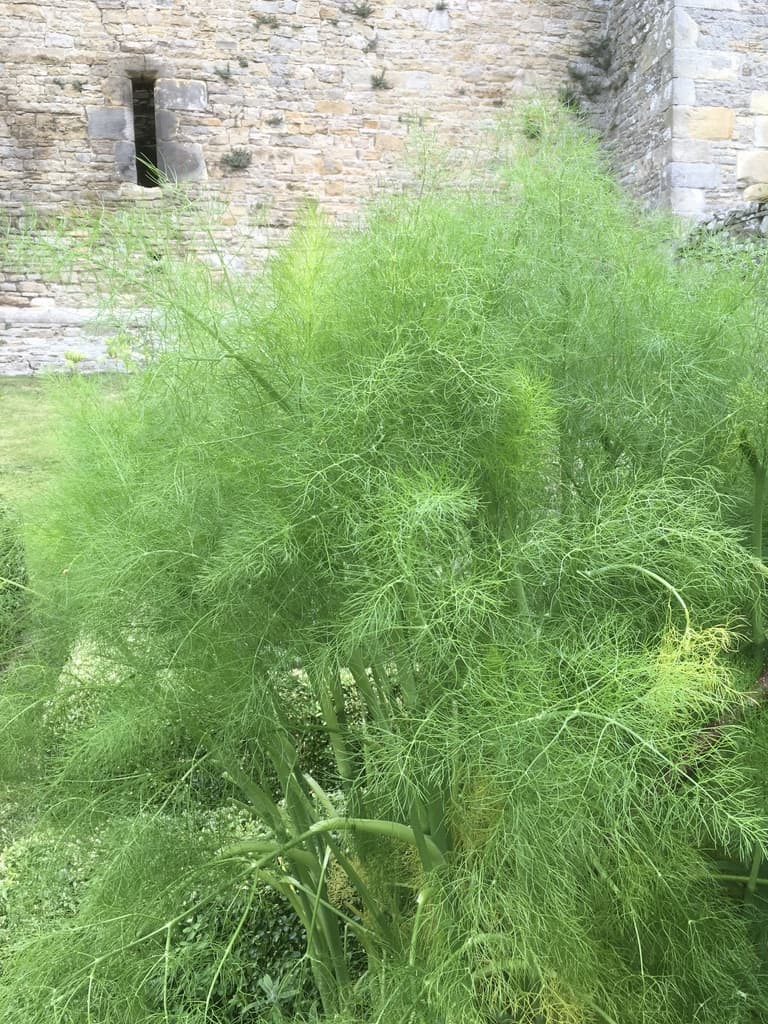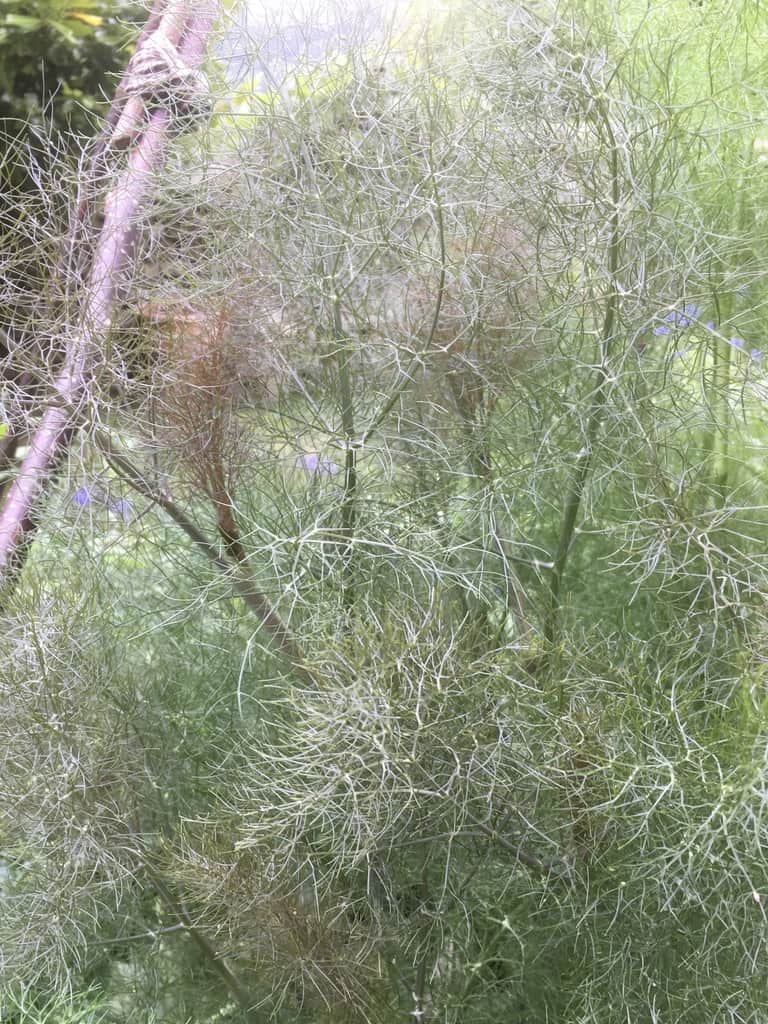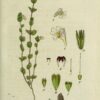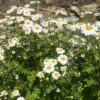Fennel (Foeniculum vulgare)
Bronze Fennel (Foeniculum vulgare ‘purpureum’)
Flowers: Early summer. Height: Up to 180cm (70in).
Fennel was cultivated by the ancient Romans for its aromatic fruits and succulent, edible shoots. It was a popular herb in the household of King Edward I of England with his account books from 1281 listing “a purchase of 8 1/2 pounds of fennel seed” (a month’s supply). On Church mandated ‘Fastying dayes’, the faithful used fennel to get through the day. They would bring handkerchiefs with fennel seed to nibble on during long services to stave off hunger.
Medicinal: Esteemed by many herbalists for its peculiarly strengthening effect on the sight due to its antioxidants, it was used to treat eye inflammation and failing eyesight. Pliny’s The Naturalis Historie (77AD), believed that fennel was so powerful that he used it to treat 22 different ailments observing also that serpents eat it “when they cast their old skins, and they sharpen their sight with the juice by rubbing against the plant”. The seeds were chewed to sweeten breath, help a toothache, and gargled to relieve sore throats. It was also used to treat colds, fevers, insanity, stomach and heart ailments, infant colic, body odour, and the leaves were chewed to help with digestive problems. When steeped into a tea it was believed that fennel was also a treatment for losing weight as it works as an appetite suppressant. Fennel was believed to be an effective antidote for poisonous mushrooms and snakebite and a plaster of fennel roots was a traditional treatment for the bites of mad dogs.
Culinary: Often used when cooking fish and to flavour salads and soups. Fennel seed was used as a condiment especially for salt fish, much consumed by our 17th century ancestors during Lent.
Magic & Myth: Fennel was hung over doorways and its seeds inserted into keyholes to protect a dwelling and its inhabitants from evil spirits and witches, particularly around Midsummer’s Eve when, during medieval times, evil spirits were thought to roam freely.




